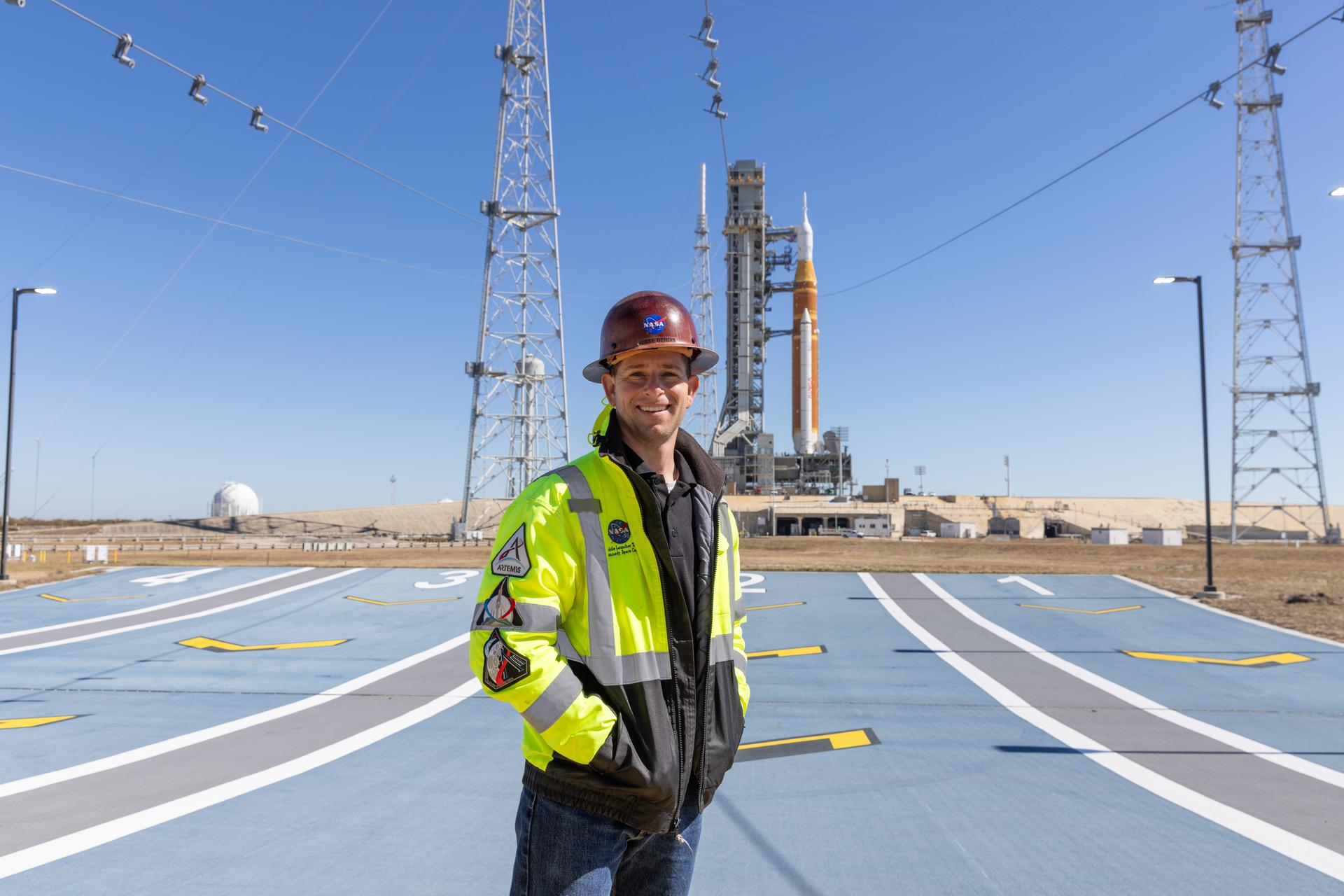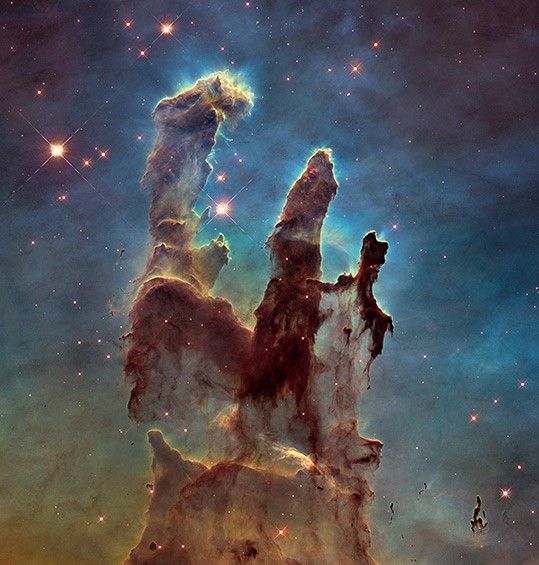1 min read
The Resolving Power of the Hubble Space Telescope

The image on the right is a portion of the first image returned by the Wide Field/Planetary Camera on the Hubble Space Telescope (HST). On the left is a ground based image of the same area of the sky. The object shown in these images is a double star: the pair of stars is well separated in the HST image but blurred together in the ground based image.
TECHNICAL DETAILS: At the stage in the focusing and alignment of the HST, stellar images contain a small core about 0.15 arcseconds in diameter and diffuse wings about 0.7 arcseconds in diameter. Each pixel in the HST image is a square 0.1 arcseconds on a side. The pixels in the ground based image are 0.32 arcsecond squares and the stellar images are 1.1 arcseconds in diameter which is also the separation of the double star. The ground-based image was obtained by Dr. Eric Persson of the Las Campanas Observatory. The picture released by NASA on Sunday emphasized the broad wings of the HST images. These broad wings are the result of the fact that the telescope is not yet fully aligned and focused- a process expected to take several months to complete. The image here, on the other hand, shows that embedded within each of the stellar images in the first HST frames is a very sharp core. This is contrasted with the ground based image, where the effect of the atmosphere blurs even a perfectly focused image. In the comparison shown here, two stars appear as one at ground based resolution, but are cleanly separated by the HST. These images are a hint of things to come when further alignment and focussing is expected to produce stellar images than 0.1 arcseconds with negotiable wings.
- Release DateMay 22, 1990
- Science ReleaseThe Resolving Power of the Hubble Space Telescope
- Credit
Share
Details
Claire Andreoli
NASA’s Goddard Space Flight Center
Greenbelt, Maryland
claire.andreoli@nasa.gov































